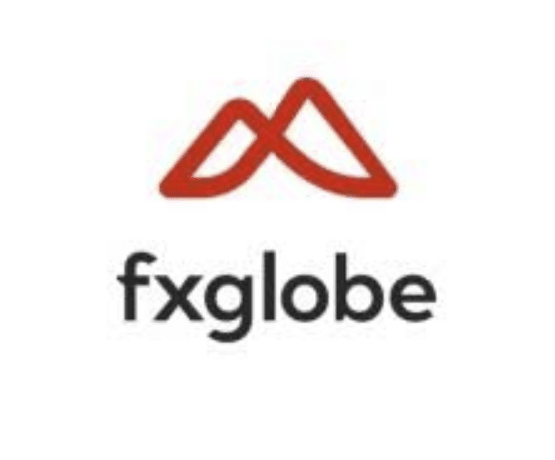Erez Ventura and FXGlobe Scam (2024)

Under licence number 205/13, FXGlobe Ltd. is a Cyprus Investment Firm (CIF) that is subject to CySEC regulation. This CIF uses the authorised domain www.fxglobe.com to conduct business as a forex broker. But it appears that the FXGlobe Group uses this CySEC licence just as a marketing tool for their unregulated operations, which they carry out through a number of offshore businesses. Both the Italian Consob and the Spanish CNMV have ordered shutdown of the FXGlobe Group’s websites and issued investor warnings in recent weeks. These offshore activities should not even be permitted under CySEC standards. However, this is CySEC; this is Cyprus.
Launching an offshore attack on Europe
In this context, the phrase “offshore” is deceptive. FXGlobe and other CySEC CIFs are actually offering illicit financial services inside the EU or EAA through partners and associated offshore vehicles. The enforcement measures taken by other agencies, such the FCA, CNMV, or Consob, against investment businesses regulated by the CySEC, provide ample documentation of this. It is true that ALL of a CIF’s operations have to be disclosed to and/or approved by the Cyprus regulator in accordance with CySEC legislation. As FXGlobe demonstrates, this clause is, in reality, far too frequently ignored.
On Finance Feeds, Andrew Saks has penned an insightful piece about this regulatory gaffe. With CySEC CIFs, FXGlobe’s offshore strategy is the norm rather than the exception. They attempt to use EU investors to carry out illegal activities and get around ESMA restrictions. In this context, it could be wise for CySEC to hire outside advisors who are impartial and don’t have a history of sending out “brown envelopes.”
Our preliminary research of the FXGlobe Group in relation to CNMV and Consob was recently published. In it, we outlined the different names and companies that provide illicit financial services.
This comprises
- FXGlobe International, through subsidiary FS International, which is regulated by the VFSC in Vanuatu, is targeting European consumers. FXGlobe International (www.fxglobe.international) is registered in Vanuatu and is “regulated” by the VFSC.
- Additionally, this Vanuatu organisation runs the broker scam Streams a/k/a GoStreams (www.gostreams.io) and the BMMC Investment website (www.bmmcinvestment.com), all of which were active until recently.
- Recently, they moved the Streams operation to St. Vincent and the Grenadines’ Streams Global Markets LLC.
Long tale, brief! Offshore vehicles and offshore regulators (who do not deserve the term) are used by the CySEC-regulated FXGlobe Group to attack European investors.
We are aware that the CEO, one of the beneficial proprietors, and an Israeli born in August 1973 is Erez Ventura, a principal of FXGlobe Group.
FXGlobe Group (As claimed)
Established in 2008 by a team of people with extensive backgrounds in online FX and CFD trading. With streaming access to a large selection of instruments, FXGlobe Markets allows traders to trade on MT4 and MT5 platforms with CFDs on Forex, shares, indices, futures, and commodities. They claim that their goal is to provide traders with previously unheard-of levels of service, including money management, social trading, retail trading, and a very fulfilling environment for forming partnerships.They claim that they offer our clients educational materials, news about the market, trading tools for risk management, and round-the-clock, multilingual client service.
Warning: There is a considerable amount of risk involved in trading leveraged products like Forex and CFDs, so it may not be appropriate or suited for all investors.
CySec
The Cyprus financial regulator is the Cyprus Securities and Exchange Commission, or CySEC for short. Operating under EU legislation, CySEC complies with the European MiFID financial harmonisation law in terms of financial regulations.
CySEC has registered a sizable number of foreign retail forex brokers. For many binary options brokers, CySEC was the preferred regulator prior to 2018.
As a public corporate organisation, CySEC was established in 2001 under section 5 of the Cyprus Securities and Exchange Commission (Establishment and Responsibilities) Law of 2001. CySEC joined the European MiFID regulation at the same time as Cyprus joined the EU in 2004, providing companies registered there access to all European markets. However, the financial regulatory structure that CySEC enforced for what was once thought to be a tax haven was drastically altered upon the EU’s membership and adoption of the Euro. CySEC issued a regulatory change on May 4, 2012, pertaining to the categorization of binary options as financial instruments. As a result, platforms for binary options that are based in Cyprus—where the majority of them do—had to be subject to regulation. As a result, CySEC became the first financial regulator in the world to officially acknowledge and control binary options as financial instruments.
On July 10, 2019, CySEC permanently prohibited providing binary options trading to retail traders, following the implementation of a temporary ban on the products in July 2018.
The following are the duties of CySEC:
- to oversee and manage the trading activities of the Cyprus Stock Exchange, as well as the Stock Exchange’s listed companies, brokers, and brokerage firms.
- to oversee and administer mutual fund management firms, collective investment funds, licensed investment services organisations, and investment advisors.
- to authorise investment firms, including brokerage houses, brokers, and consultants, to operate.
- against applying disciplinary actions and administrative consequences against investment consultants, brokerage houses, brokers, and any other natural or legal person covered by the Stock Market Laws.
A recent change to the law governing CySEC’s duties has given it considerable authority over the organisations it oversees, allowing it to: In a recent amendment to the Law governing CySEC and its responsibility it has received significant power over the entities that it regulates in that it may carry out investigations, enter premises and search as well as to share any findings with foreign regulators.







